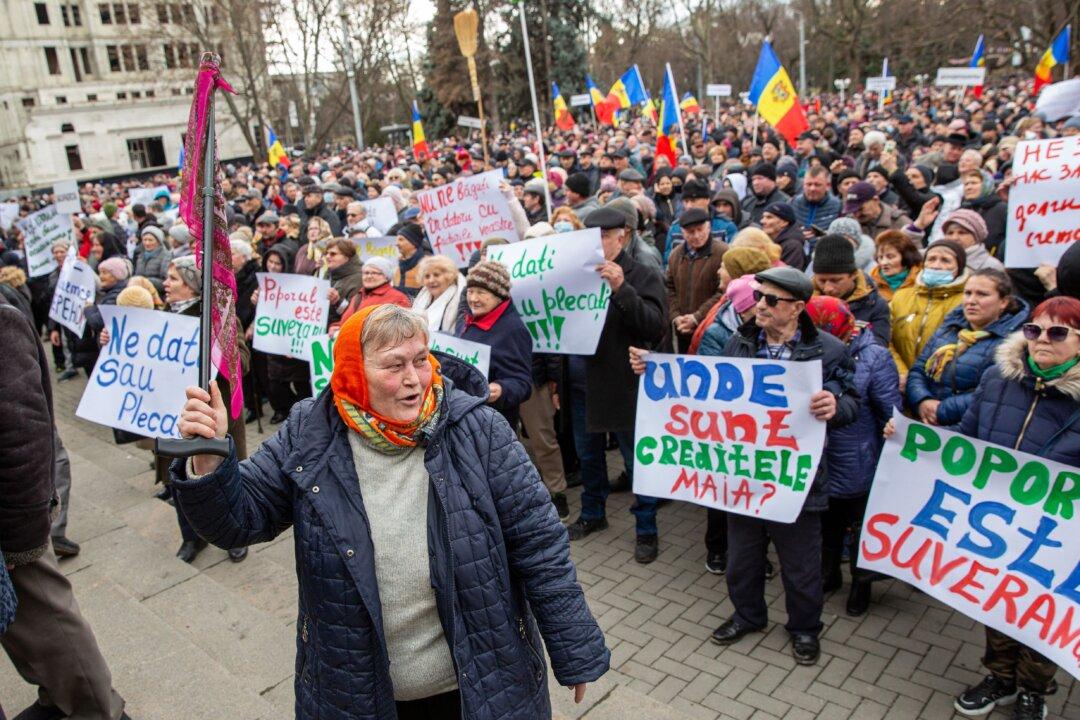CHISINAU, Moldova—Moldova’s intelligence agency said Monday that two foreign nationals who posed as tourists have been expelled from the country and banned from returning for 10 years after they were caught carrying out “subversive actions” to destabilize Moldova.
Moldova Expels 2 Foreigners Caught in Plot Carrying Out ‘Subversive Actions’
Plot group affiliated with network of social engineering experts

Holding signs, people take part in a protest against the Moldovan Government and their pro-EU President in Chisinau on Feb. 19, 2023. A couple of thousands of protesters gathered downtown answering the call made by the Russia-friendly "ȘOR" Party, as tension run high in pro-Western Moldova after allegations of Moscow's attempts to destabilise the country came to light last week. Facing multiple crises aggravated by Russia's war in Ukraine, the impoverished former Soviet republic of 2.6 million people wedged between Romania and Ukraine, Moldova is already wrestling with an energy crisis prompted by supply cuts from Russia's targeting of Ukraine's energy infrastructure, and tensions have flared up due to missile overflights connected to the war in Ukraine. ELENA COVALENCO/AFP via Getty Images
|Updated:




